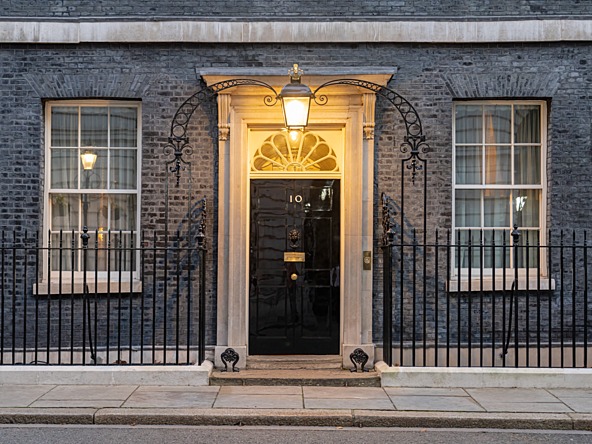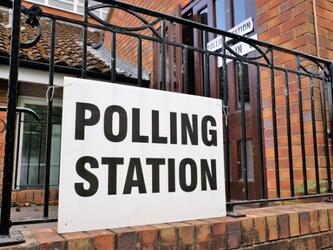Pollsters react to Labour election victory

The results for the UK general election, held on Thursday 4th July, saw Labour win 412 seats and almost 34% of the vote to the Conservatives’ 121 seats and near 24% vote share by Friday lunchtime, with a handful of constituencies still to declare.
The Liberal Democrats came third with 71 seats, a 63 increase, the Scottish National Party lost 38 seats to drop to 9, while Reform won four seats and came third on vote share, with almost 15%.
The results meant that Labour’s Keir Starmer has become prime minister, replacing the Conservatives’ Rishi Sunak.
Commenting on the election campaign, Jane Frost, chief executive at the Market Research Society, said that she was “pleased to see that the polls were consistent and reporting much more responsible than has happened in the past”.
Chris Hopkins, political research director at Savanta, said that the polling industry had performed generally well.
“Broadly, the industry correctly forecast a historic Labour majority, the collapse of the Conservative Party and increases for the Liberal Democrats and Reform UK,” he said.
“MRP projections have also held up pretty well in aggregate seat numbers, even if there are reflections for us all about the best ways to communicate increasingly complex election models.”
But Hopkins warned that there would still need to be investigations into pre-election polls overestimating the size of Labour’s majority over the Conservatives.
“We should acknowledge that there has been an issue for many pollsters in overestimating the Labour vote, and underestimating Conservative vote share, including at Savanta,” Hopkins added.
“That’s understandable in a hugely volatile election, but means we intend to conduct a full review of what we can do to improve for the next time.”
Joe Twyman, director at Deltapoll, said the polls performed well generally, but noted a slight undercounting of the Conservative vote and a slight overcounting of Labour.
“It is worth remembering this is really difficult, because this is not one contest – it is 650 individual contests, each with their unique properties and local factors. MRP can’t take account of that and national polling can’t either. If you have lots of independent candidates running, that can throw things out,” he said.
“I am happy with how the polling has gone and I am confident in our methods. But as is the case after every election, we will go away and look at how things could be improved.”
James Crouch, head of policy and public affairs research at Opinium, said: “As we’ve anticipated for many months now, Labour has its landslide overall majority. The polls told us that Labour is clearly the largest party, the Conservatives are at a record-breaking low, and that smaller parties, especially the Greens and Reform, are doing significantly better in terms of vote share than those types of parties have done before.
“There were some big surprises on the night. Firstly, Labour did badly in many of its safest seats, losing out to Greens and independents. This contributed to the party having a relatively low vote share considering the size of their landslide. Some of the shadow cabinet seat losses were remarkable, and Labour’s huge drop in vote share across London was remarkable.
“Secondly, the turnout was very low. This is the lowest turnout since 2001 and the biggest drop in turnout in a single election since Blair’s second landslide too. When large numbers of voters stop voting, it significantly changes the makeup of the voters that actually go to the polls, which makes the research industry’s job even harder in navigating how we calculate headline voting intention.”
Vote share
Dr Patrick English, director of political analytics at YouGov, said that the final projection in its MRP model correctly projected the Labour landslide and the collapse in the Conservative vote, as well as the performance of the Liberal Democrats, Green Party and Reform.
“There are things in the results that we will need to build into our future work. While we foresaw Labour’s struggles in its safest seats and a potential fragmentation of its voter base coming, our model could have done better at picking up the extent of that.
“Labour’s decline in particular constituencies where there are a high number of ethnic minority voters is something we will particularly look to address. While our overall vote shares were largely on-point, Labour’s was too overstated, and the Conservatives was understated.”
English added that electoral shifts had made the general election less than straightforward to predict.
“First, the independence movement in Scotland in the wake of the referendum vote in 2014 shattered the dynamics of almost all first-past-the-post constituency battles there. Second, the Brexit debate unmoored various voter groups that were previously closely aligned to particular parties.
“The third – related – point, is that the 2019 Tory election-winning coalition was a unique blend of north and south cultural and economic conservatives and liberals. This coalition has fragmented beyond recognition, with each of Labour, Reform UK, the Liberal Democrats, and even the Greens benefiting.”
Alexandra Jennings, associate director at Thinks Insight & Strategy, said the company had followed 50 undecided voters throughout the campaign as part of its Election Diaries project.
“We heard that the campaign did little to shift their perceptions of political parties. The diarists felt they heard no new information that could guide how they vote (e.g. what they would do improve the NHS). Instead, the campaign just confirmed their existing perceptions of UK politics: that it doesn’t work in favour of ‘normal people’.
“Interestingly, for a substantial minority that sentiment that it’s ‘time for change’ was filled by Reform UK. Nigel Farage’s entry and the party’s rise during the campaign really cut through and delivered new news for many of the diarists. By the end, they had positioned themselves as an ‘alternative’ to the two main parties and some saw an opportunity to shake things up.”
Jennings added: “Overall, many of the diarists are feeling bittersweet this morning. It’s the result that many of them wanted – albeit the extent of the victory feels daunting to lots of them. The lack of an offer from the Labour Party during the campaign also means that for many it’s a leap in the dark and they’re just hoping for the best.”
Industry reaction
Stephen Woodford, chief executive at the Advertising Association, called for economic growth and support for the advertising sector.
“As we enter a new political landscape, creating the conditions for responsible, sustainable business growth is the top priority,” Woodford said.
“The UK needs to remain at the forefront of the data-driven economy. Regulatory certainty and support for the Advertising Standards Authority is key, as well as reforming education and skills policies to ensure our industry has the best creative and digital talent for our continued success and to grow jobs and investment.”
IAB UK’s head of policy and regulatory affairs Christie Dennehy-Neil said the new government represented an opportunity to reassess how to address challenges within the online ecosystem.
“We’re calling on Labour not to automatically pick up where the Conservatives left off when it comes to making policy decisions about further regulation of digital advertising, and to take time to carefully interrogate the evidence and define its priorities,” Dennehy-Neil said.
“It’s in everyone’s interests to strike the right balance between managing the risk of consumer harm and supporting the UK’s digital advertising industry – and the wider digital economy that it drives – to thrive.”

We hope you enjoyed this article.
Research Live is published by MRS.
The Market Research Society (MRS) exists to promote and protect the research sector, showcasing how research delivers impact for businesses and government.
Members of MRS enjoy many benefits including tailoured policy guidance, discounts on training and conferences, and access to member-only content.
For example, there's an archive of winning case studies from over a decade of MRS Awards.
Find out more about the benefits of joining MRS here.














0 Comments